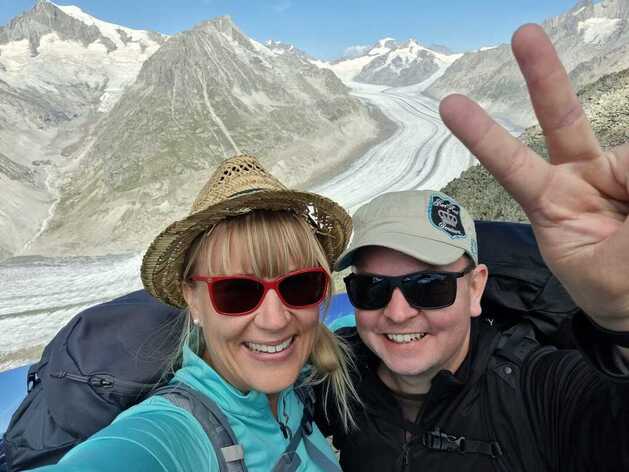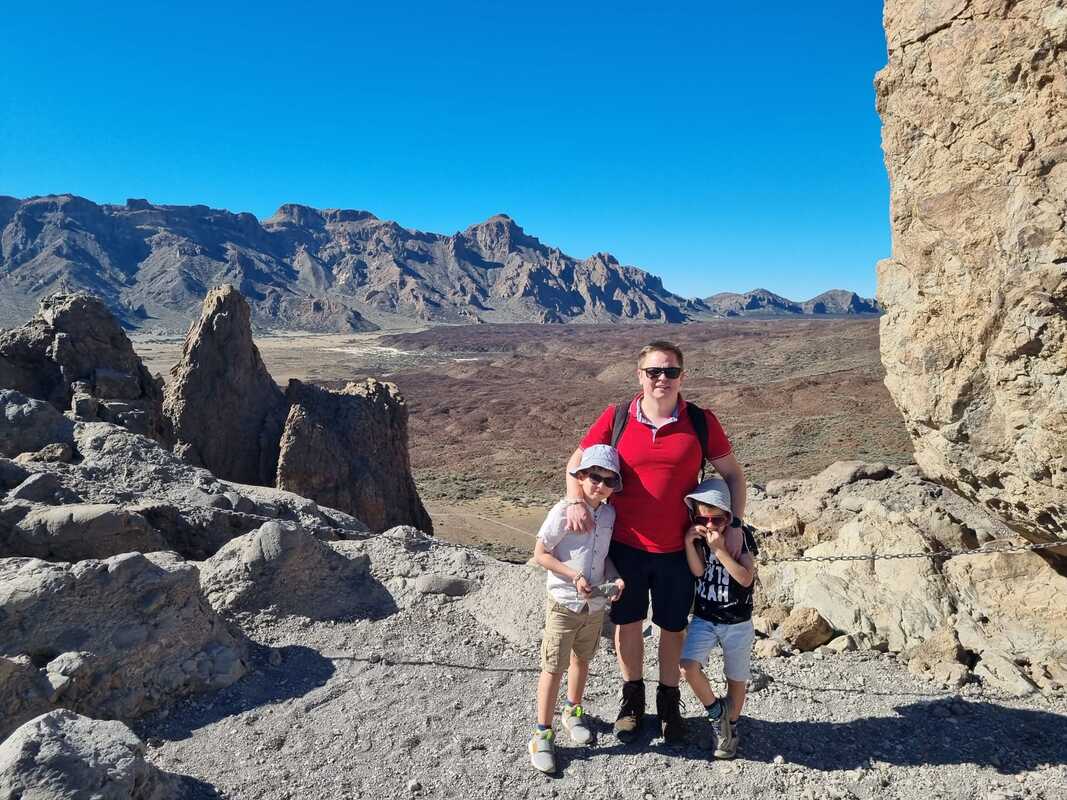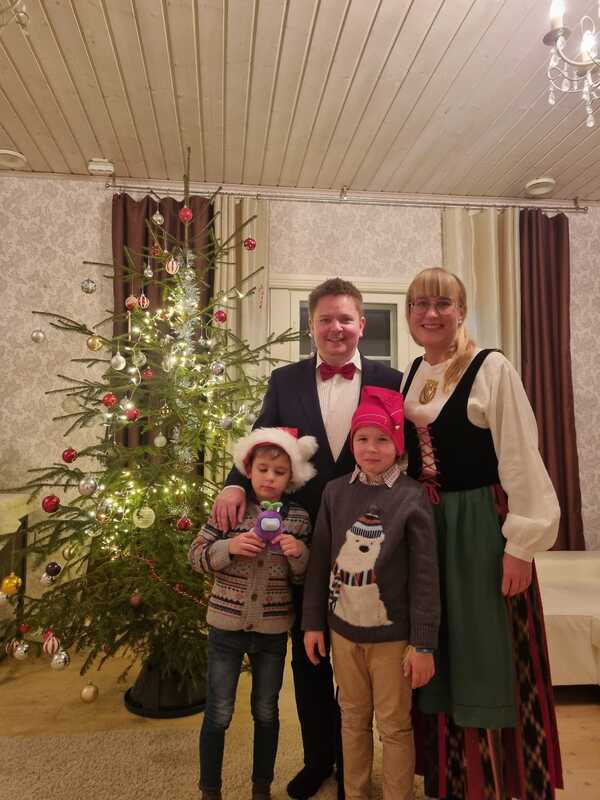Story #7What does it mean to be from everywhere and nowhere at once? I am writing from a small cabin in Karigasniemi. To get here, you turn North from Mannerheimintie and keep driving 15 hours, and then walk for another 30 minutes from the nearest road. Fortunately, a Lappish man (actually a Sami man), Nilla, has been kind enough to drive the snowmobile a few times back and forth, so it's easier to walk the harder snow from snowmobile tracks. All my life I have had a passion of understanding people and trying to figure myself out. So much so that I forced myself into the School of Social Sciences at the University of Helsinki. Quite merit for somebody who was relatively talented at math but had close to zero skills in writing or other studies in humanities. My master’s program was that of Ethnic relations, Cultural Diversity and Integration, and I wrote my Thesis on Third Culture Kids. A little controversial topic for Thesis, as there was not much Academic research at that point. There’s a hint of irony that I am writing this in Karigasniemi which is not far away from the most Northern Point of the European Peninsula – considering that I grew up not too far away from the most Southern Point of the European Peninsula, Málaga. The locals in Karigasniemi speak Sami, tourists speak Finnish or Norwegian. Nilla refers to us as tourists all the time. Of course, that is quite accurate. We have had a family cabin there for 40 years. I been visiting the place ever since I was born. I have some of my first memories from this place. However, there is no doubt I am a tourist. In Spain I was considered a tourist by many locals. I hated it. I fought back the idea that I didn’t belong. It makes sense, after all it was my home. Spanish was my other mother tongue – my daily language. My cultural upbringing was Finnish from home, but the school, the friends, the surrounding culture was Spanish. For 11 years from the age of 8 to the age of 19 I grew up in Málaga. Some considered me somewhat local, referred to me as one of them, I do recall feeling pride. They say, that the feeling of belonging is one of the most important things when growing up. However as much as I didn’t think about it or ignored it, it is clear – my ethnicity was a giveaway that I am not Spanish. Where are you from? Such a simple and common question. I think my Identity has been transforming all the time The first years in Málaga I was at a Finnish school. For 3 years I grew up with fellow Finns living in Spain, and a few occasional Spanish neighbours. Around the years 1996 – 1997 I spent a few years in a Spanish school called Sohail. At the age of 12 this was quite hard. I really stood out. The only non-local kids were myself and this Chinese boy, and he wasn’t in my class. Learning Spanish happened fast, but making friends was harder. Bullying was the name of the game. I remember hating it, crying. But somehow, with years having passed, I don’t despise it – but rather think of it as one of the most important parts of my childhood. It was only a few years, and it wasn’t so bad. I also learned a lot. The language. Being an outsider. What it feels to be humiliated, but not letting it break you. How to not let others define you. How to be proud of yourself and believe in yourself. I was lucky, it was a few years, a longer time or a different period of life could have made the experience a whole lot different. Also, I had a few friends outside of school. I had a hobby. I had loving and caring parents. For the last 4-5 years in Spain, I was in an international college. So many kids just like me. Even the Spaniards in the school were somewhat culturally open. Perhaps because they were growing amongst all the other kids who were from all these countries… Denmark, Germany, England, France, Russia, Italy, Norway, Finland, India, Colombia, Brazil, Holland, Spain, Chechenia… Some of my closest friends, even the ones close to me nowadays. Godparents of my children. I suspect my life would have looked very different without this experience. This time really defined me. My teenage years spent having a great time being young and foolish with peers, experiencing things together. A strong feeling of belonging. Important friendships. At the age of 18-19 I moved “back” to Finland. For the first years, I felt like a tourist. My mother tongue is Finnish and ethnically I looked Finnish. However, I didn’t feel I belonged. Often, I explained my mother tongue is Spanish. It gave me a reason to be a little different. I was allowed to be talkative, smile a lot – even hug people. Not something culturally acceptable for a Finnish man. Even when I moved to England for a few years at the age of 23, the Spanish identity was a strong one – at least equally strong as the Finnish one. My mother tongue is Finnish and ethnically I looked Finnish. However, I didn't feel I belonged
I am still confused most of the time. I don't expect this to change in regard to my cultural identity. It will always be a mixture. And that is fine- the ambiguity and the constant change are part of my identity I started this narrative by explaining how I am in Karigasniemi. For 40 years my father has been coming and going here. We don’t have relatives here, but as I learned during my travels this time, my father belongs here as well. Even though his ashes rest next to the cabin, the locals will always call him a tourist. They will always call me tourist also. But really, what are we but tourists visiting the places we travel? Maybe that is my identity and my destiny. In Finnish there is a great word, Samooja. Perhaps traveler or ranger is what I aspire to be rather than a tourist. My Finnish partner, she has taught me to travel and hike in the nature. For the first time in my life, I am learning to enjoy time alone in the nature. For me Samooja means being from everywhere and nowhere at once. Editor: yvETTE AHONEN
1 Comment
29/6/2024 02:24:34
What themes or messages does Jaakko Haarala's story convey about family life and relationships?
Reply
Leave a Reply. |
Haluamme kertoa juhlavuotemme kunniaksi 35 tarinaa kahden kulttuurin perheistäJulkaisemme 35 viikon ajan 35 erilaista tarinaa, jotka kuvastavat monia haasteita ja mahdollisuuksia, joita kahden kulttuurin perheet jokapäiväisessä elämässään kohtaavat. Haluamme näiden tarinoiden heijastavan todellisuutta ja tarjoavan vertaistukea, voimaannuttavia kokemuksia ja inspiraation lähteitä sekä lisäävän tietoisuutta kulttuurienvälisyydestä ja monikielisyydestä Suomessa. For 35 weeks, we will be publishing 35 different stories that reflect the many challenges and opportunities intercultural families face in their everyday lives. We want these stories to reflect reality and serve as an accessible peer support, source of empowerment and inspiration, and increase awareness of Interculturalism and Multilingualism in Finland.
Archives
January 2024
Categories |
|
|
© Familia 2024




 RSS Feed
RSS Feed

